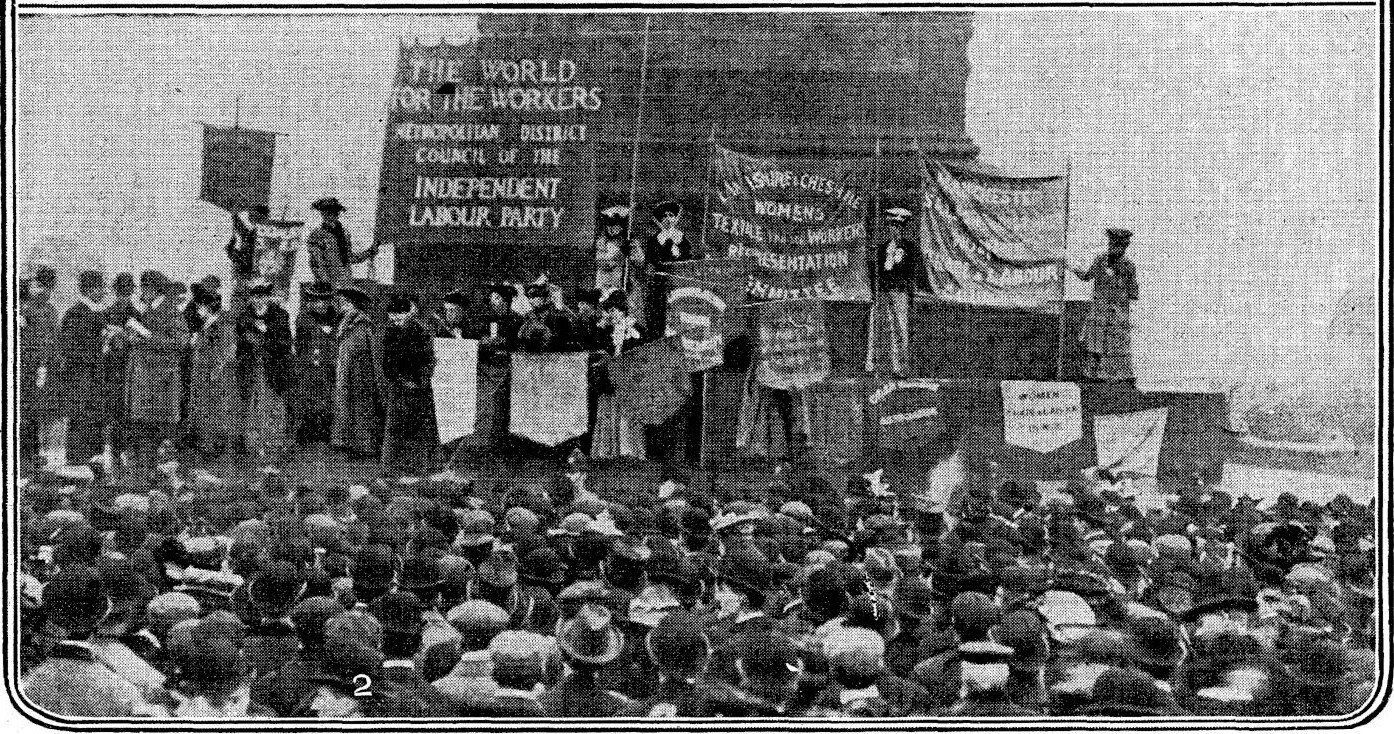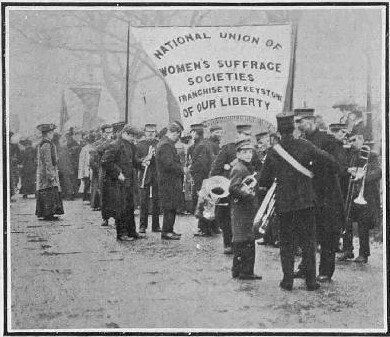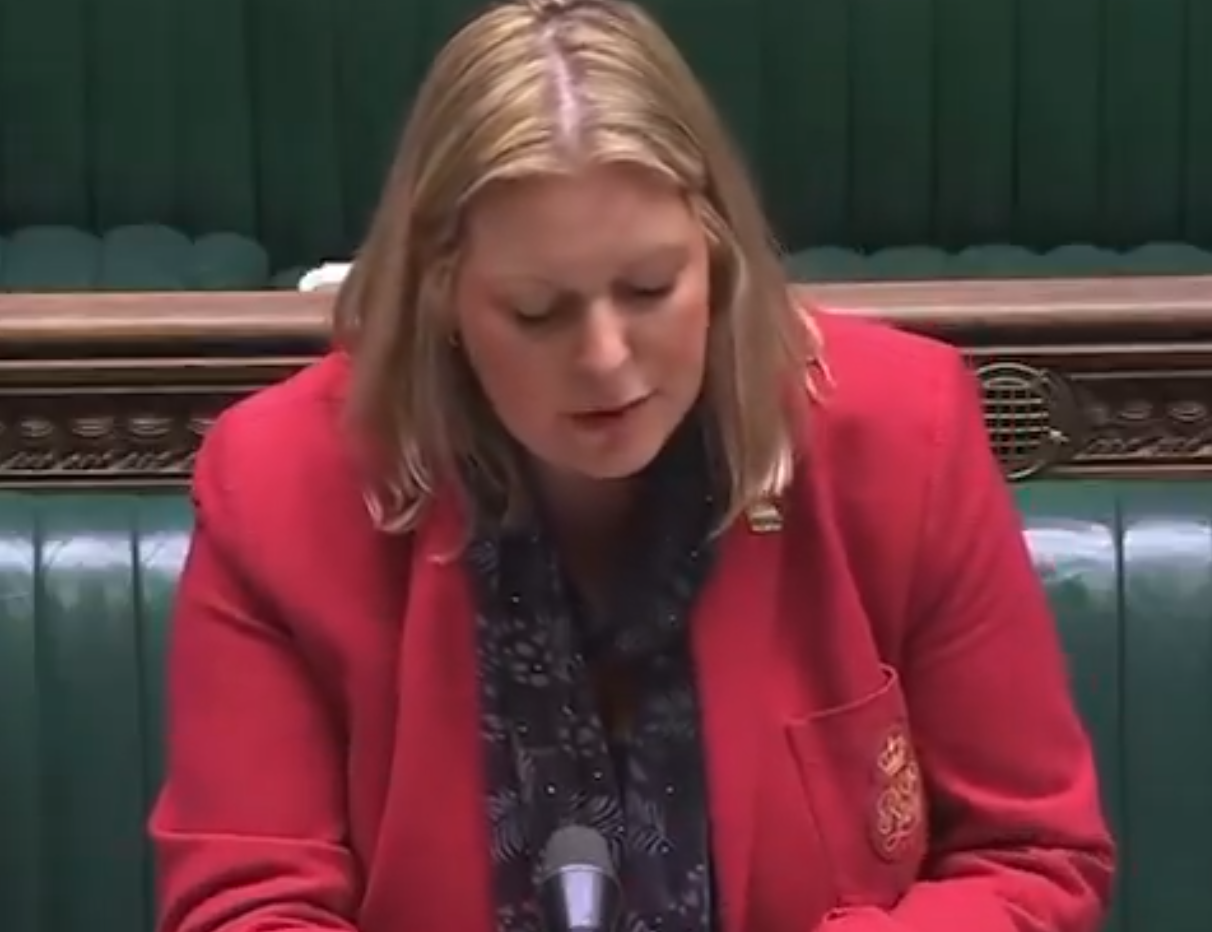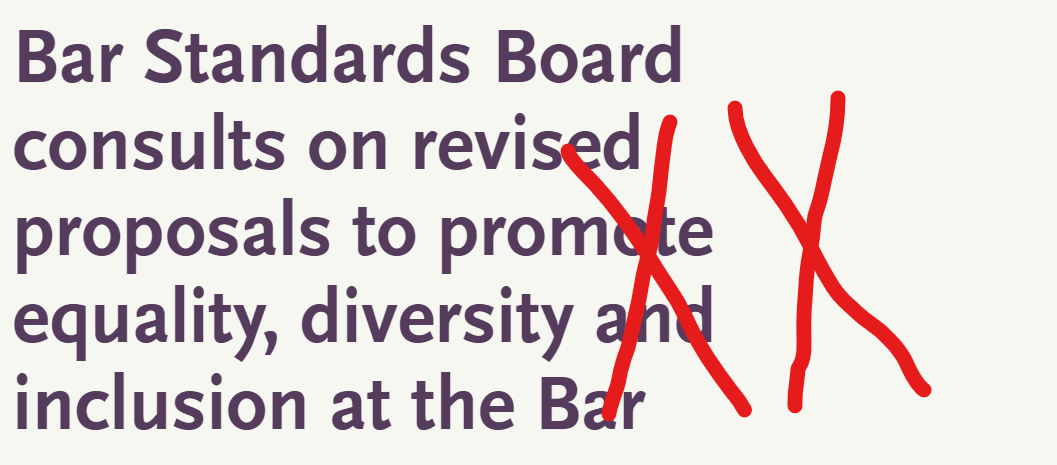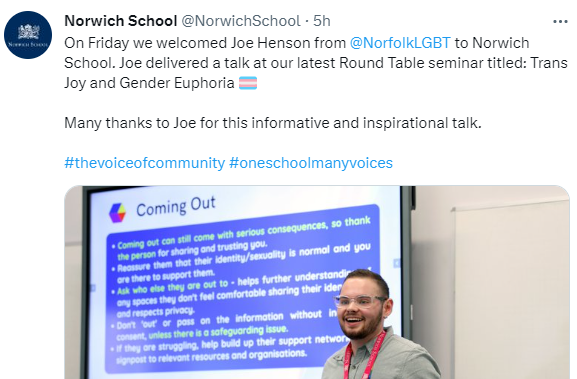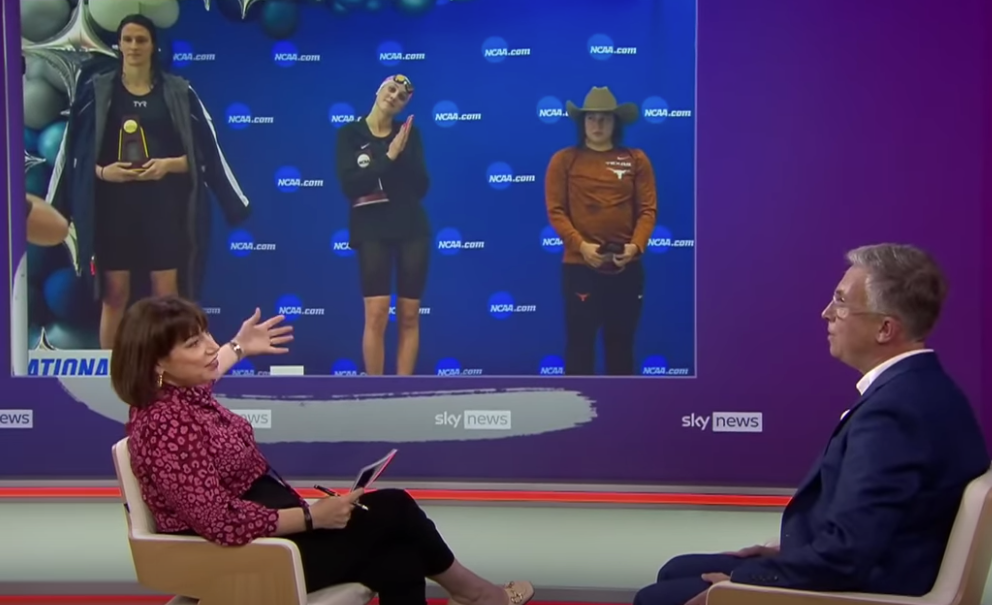On Saturday, 9 February 1907, the National Union of Women’s Suffrage Societies organised the largest and most peaceful pro-suffrage demonstration of its time.
Our first in an occasional series of guest blogs: the parallels are clear, even after 114 years. Thanks to
Martha Blackmann for this evocative piece, 13 February 2021.
It was a triumph: led by a brass band, followed by a procession of carriages and motor cars carrying flags bearing the initials WS, and by marchers carrying red and white banners and bouquets of red and white flowers. The marchers - up to 7,000 of them - wore matching red and white rosettes.
As the first large procession organised by the NUWSS, it required a great deal of smoothing of "all sensibilities and political disagreements” beforehand in order to reconcile many separate suffrage groups with differing political sensibilities and very different points of view about how to achieve their objective, but it was a triumph of diplomacy. Only the Pankhursts’ Women’s Political and Social Union declined to attend in an official capacity but many of its leading members were there anyway: Christabel Pankhurst, Annie Kenney, Nellie Martel and Emmeline Pethick-Lawrence. According to historian Diane Atkinson: “Belonging to both organisations, going to each others' events, and wearing both badges was quite usual".
The whole event was organised by Pippa Strachey. She had no experience of planning anything similar but she approached it with such strong organisational skills that she was given responsibility for the planning of all future large processions of the NUWSS. In fact, up until then, Pippa Strachey had shown little interest in women’s suffrage until Emily Davies - the co-founder of Girton College and best friend of the fabulous Garrett sisters, Elizabeth Garrett Anderson and Millicent Garrett Fawcett - convinced her of the importance of the cause.
Pippa Strachey made it a whole team effort by enlisting help from each of the various suffragist groups. The Artists’ Suffrage League produced posters and postcards for the march. The red and white rosettes for the marchers had been produced by Maud Arncliffe Sennett, a leading member of the Actresses’ Franchise League. The London Society for Women’s Suffrage placed ads in several newspapers to publicise the event and to encourage women from all walks of life to attend and support the march. Everyone played a part. It was a stroke of genius.
In fact, creating a sense of common purpose and unity was crucial. Rachel Strachey, a close ally of Millicent Fawcett but no relation to Pippa, wrote:
“In that year, the vast majority of women still felt that there was something very dreadful in walking in procession through the streets; to do it was to be something of a martyr, and many of the demonstrators felt that they were risking their employments and endangering their reputations, besides facing a dreadful ordeal of ridicule and public shame.”
Does that strike a chord today?
In all, around forty organisations from all over the country chose to participate. The only thing that couldn’t be planned for was the weather. On the day, it rained incessantly. "Mud, mud, mud" everywhere, according to Millicent Fawcett. In fact, it was commemorated as The Mud March.
That morning, thousands of women congregated at the statue of Achilles near Hyde Park Corner and organised themselves into sister groups in strict order of precedence. The march was led by Millicent Fawcett; Emily Davies, the Mistress of Girton College; Lady Frances Balfour, sister-in-law of the former Conservative Prime Minister; Pippa’s mother Lady Jane Strachey; Rosalind Howard, the Countess of Carlisle; and Eva Gore-Booth, younger sister of Countess Constance Markiewicz. They were followed by women in the professions and then by large contingents of working class women from northern and other cities, marching under banners that proclaimed their varied trades.
At 2.30pm, the women had a procession order that stretched down Rotten Row and the march set off with the brass band leading. Despite the dreadful weather, thousands of spectators lined the route to watch the unusual sight of “respectable women marching in the streets".
Actress and suffragist Katharine Frye joined the march at Piccadilly Circus and noted the reaction of the spectators: "Not much joking at our expense and no roughness". The reporter from The Observer recorded that "there was hardly any of the derisive laughter which had greeted former female demonstrations" although The Morning Post, now The Telegraph, deplored the "scoffs and jeers of enfranchised males who had posted themselves along the line of the route, and appeared to regard the occasion as suitable for the display of crude and vulgar jests".
Rachel Strachey noted, “They walked, and nothing happened. The small boys in the streets and the gentlemen at the club windows laughed, but that was all. Crowds watched and wondered; and it was not so dreadful after all ... The idea of a public demonstration of faith in the Cause took root.”
As it approached Trafalgar Square, the march split into two groups: the representatives from the North held a pre-arranged open air meeting at Nelson’s Column while the main body of marchers carried on to a political meeting at Exeter Hall chaired by a sympathetic Liberal MP, Walter McLaren. Keir Hardie of the Labour Party spoke from the platform, offering his support.
Press coverage was extensive - it was front page news in almost every newspaper - and the cause of women’s suffrage enjoyed more publicity in a week “than it had enjoyed in the previous fifty years".
The Daily Mail strongly supported women’s suffrage and carried an eyewitness account by Constance Smedley, playwright and founder of the Lyceum Club. The Morning Post, also supportive, reported extensively on the speeches and noted with dismay that the marchers had had to "run the gauntlet of much inconsiderate comment". The Graphic, later the Daily Sketch and also pro-suffrage, carried an illustration of a man holding aloft a pair of scissors which suggested “that demonstrating women should have their tongues cut out". The Daily Mirror, neutral on the subject, did a large photospread and praised the march’s conduct and professionalism.
The Times opposed women’s suffrage but thought the event "remarkable as much for its representative character as for its size". The Observer warned that “women are not ready for the vote”; that their “vital civic duty and natural function ... is the healthy propagation of race", and that the women’s movement should “educate its own sex rather than seeking to confound men". The Sphere, a now defunct pictorial journal, carried a montage of photographs under the banner headline "The Attack on Man's Supremacy".
Four days later on Wednesday, 13 February 1907, NUWSS leaders met with the Parliamentary Committee for Women's Suffrage to discuss plans for a private member’s Bill. On 26 February, Willoughby Dickinson, Liberal MP for St Pancras North, published the text of his bill proposing that women should have the vote subject to the same property qualification that applied to men. This would have been relatively few but the House of Commons closed the Ladies’ Gallery for the second reading - no doubt to ward off “dangerous women” doing dangerous things like shouting and unfurling banners - and the Bill was talked out.
It took another eleven years before women over 30 were accorded the right to vote - well, World War I had taken its toll on the male population and women outnumbered men so their numbers had to be restricted somehow to prevent them forming the majority - and it was a full 21 years before all women were enfranchised on exactly the same terms as men.
The Mud March was the largest ever pro-suffrage public demonstration of its time and although it brought no immediate gain on the parliamentary front, its significance for women’s rights was considerable. It became the template, the gold standard, for all future marches bringing together as it did a coalition of sister groups marching in unity.
That’s why Pippa Strachey, organisational genius, is our Woman of the Day.



